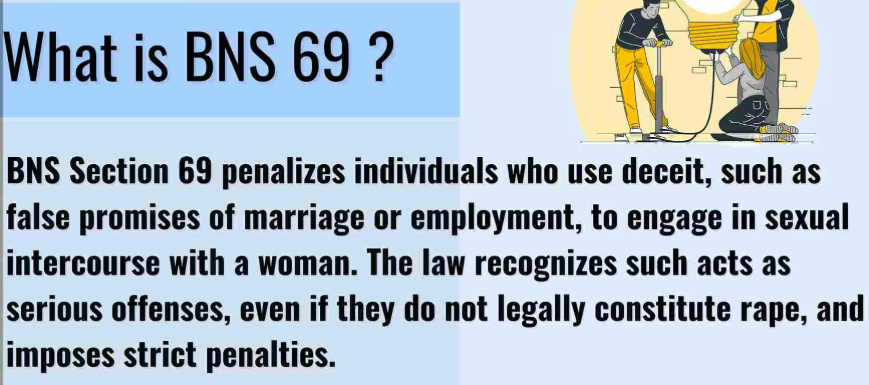The knotty promise of Section 69
(Source – The Hindu, International Edition – Page No. – 10)
| Topic: GS2 – Indian Polity |
| Context |
| ● The Bharatiya Nyaya Sanhita (BNS) introduces Section 69, criminalizing sexual intercourse through “deceitful means,” including false promises of marriage.
● This law addresses gaps in earlier provisions but raises concerns about gender bias, evidence collection, and its impact on consensual relationships. ● Legal experts and courts offer differing views, igniting debates on privacy and autonomy. |

Background and Allegations
- A case was filed under Section 69 of the BNS by a 25-year-old woman from Jharkhand against a man for engaging in a sexual relationship under the pretense of marriage.
- Section 69 criminalizes sexual intercourse based on deceitful means, such as false promises of marriage, with penalties including imprisonment of up to 10 years and a fine.
Historical Context and Evolution of the Law
- Before the enactment of the BNS, similar cases were registered under Sections 376(2)(n) and 90 of the Indian Penal Code (IPC).
- These sections addressed rape through repeated sexual acts and consent obtained under false pretenses.
- The new law explicitly includes terms like “deceitful means” and “inducement” to address ambiguities in the IPC.
| Legal Challenges and Differing Judicial Opinions |
● Courts have taken varying stands on cases under Section 69:
● Concerns have been raised about the criminalization of consensual relationships that turn sour. Gender Bias and Criticism ● Critics argue that Section 69 reinforces gender stereotypes by presuming women lack agency in sexual matters. ● The law is seen as inherently biased, penalizing men for false promises of marriage while excluding other genders and scenarios. ● A public petition has called for its repeal, citing concerns about its discriminatory nature and disregard for mutual consent. |
Statistical Insights
- National Crime Records Bureau (NCRB) data from 2016 to 2022 shows that up to 40% of rape allegations pertained to false promises of marriage or similar accusations.
- The average conviction rate for all rape cases during this period was 29.71%.
Parliamentary Report and Constitutional Concerns
- A parliamentary report on the BNS highlighted challenges in proving promises to marry, as intentions can change over time.
- The report cautioned against vague definitions that could lead to inconsistencies in enforcement.
- It also raised concerns about intrusions into individual privacy and autonomy.
Support for Section 69
- Proponents argue that Section 69 closes legal loopholes by explicitly addressing coercion through psychological or emotional manipulation.
- The law aims to protect women in patriarchal societies where marriage often defines their personhood.
Constitutional Challenge
- A public interest litigation has been filed, questioning the constitutional validity of Section 69.
- Concerns include its exclusion of the LGBTQ community, potential misuse in live-in relationships, and violation of individual rights under Article 21 of the Constitution.
- The High Court has sought a response from the government on this issue.
| Practice Question: Discuss the implications of Section 69 of the Bharatiya Nyaya Sanhita (BNS) on personal autonomy and gender equity. Analyze its potential impact on the legal framework addressing sexual offences and its compatibility with constitutional rights. (150 Words /10 marks) |

